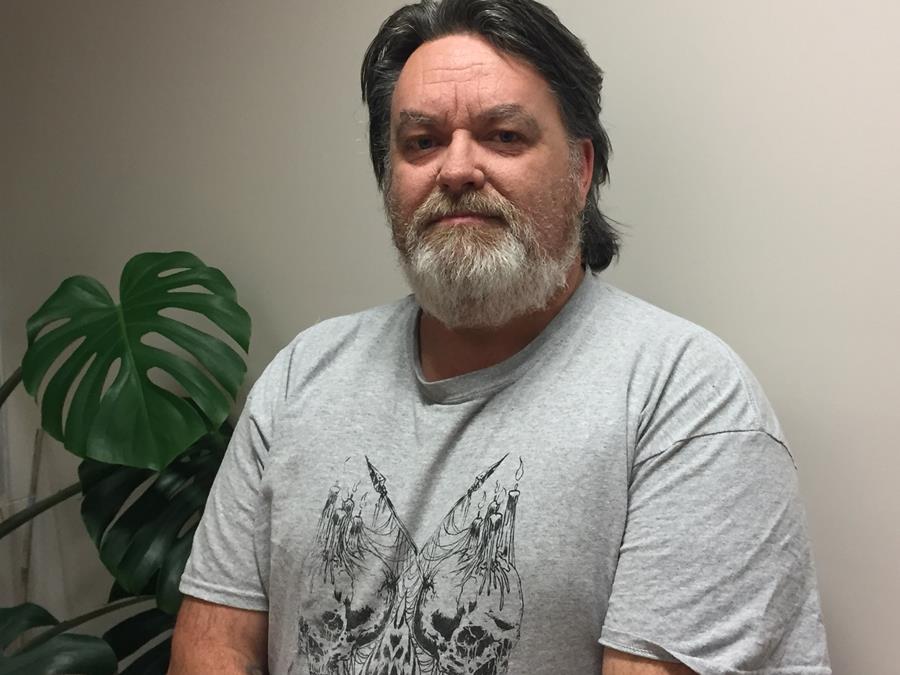Safe places
February 1, 2018
Ricky Pfeiffer is a proud member of the Returned and Services League – but refuses to step foot inside the door of his local club.
He served for a decade in the Australian Army Reserve and continues to offer friendship and support to veterans recovering from traumatic experiences.
“I’m a member of the RSL but I won’t go into any club that has poker machines in it,” he says. “RSL clubs should be places where you can go as a veteran and feel safe among like-minded people, not be a mini- casino with devices deliberately built to trigger and take advantage of people’s addictions”.
“I am very supportive of the RSL and the good work it does with advocacy and welfare, but poker machines don’t fit that model. They’re a grimy, destructive element”.
Ricky knows too well the devastating effects of a gambling addiction. One of his family members lost a multi-million dollar business because of poker machine gambling. “It was a large family business that employed six family members and more than a dozen other employees,” he said. “And it just went. The shutting down of that business had a lot of ramifications for our family and for all those employees”.
Ricky says that at the time, he had little understanding or empathy. “It took me many years to realise that people with addictions can’t just stop,” he said. “It’s no good sweeping this issue under the rug. As a society, we need to do more to help people because they can’t fight an addiction by themselves”.
He says many people who have experienced trauma resort to coping mechanisms to ‘zone out’, leaving them vulnerable to addiction.
“Trauma is not just associated with veterans,” he says. “It’s widespread. There are car accident victims, domestic violence victims, people who had a really hard time growing up – they’ll sometimes turn to things like alcohol or poker machine gambling. Unfortunately, other people in society turn away, rather than get involved and help. They say, it’s their problem, not mine”.
“But this is not just about the person with the addiction,” he says. “Poker machine addiction is like throwing a rock into a pond – there’s a huge ripple effect. Some people turn to crime to feed their addiction. Others beg, borrow and steal from family members”.
“I think as a society we owe it to those with an addiction to help them the best we can,” Ricky says. “They’ll deny it, fight and scream all along the way. But if you’ve got a gambling addiction and you’re working, how does that impact on your work? If you’re not working, how does that impact on your ability to get work? How does it impact on your home life? It goes on and on. We shouldn’t turn a blind eye to this”.
Ricky looks forward to a time when he can enter his local RSL club to enjoy a meal, rather than travelling further afield to a pokies-free club.
“It’s time to get poker machines out of local hotels and clubs,” he says. ”I want my local RSL to be a safe place where people can go for a meal, lunch, dinner, and not have the lights and noise of poker machines, just the noise of conversation,” he says. “Back to the old ways of being able to go there to talk with other veterans. Conversation opens up healing for people who may not have other outlets to talk about their trauma”.
Ricky says that he’s sick of seeing Tasmanians lose their money to poker machines. “I’m just an ordinary bloke but I want to try to highlight the problems that poker machines have for our society,” he says. “Small people don’t have the big budgets and PR companies to get their message out. But if I’m given the chance to say something, I will. I want to be true, to be real. Because a lot of people turn away and say ‘let others deal with it’. It’s not as simple as that”.
Help support Anglicare and SARC’s Pokies Cause Harm campaign.

